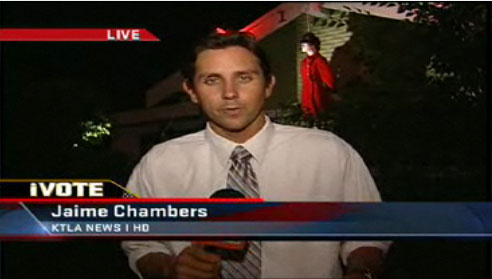I have a documentary about fly fishing that airs on RMPBS this Monday (April 26th, 9:30pm). Thanks to yesterday’s Supreme Court ruling I may have to worry about PETA picketing my show for depictions of cruelty to trout, but I won’t have to worry about serving jail time. Even though the featured fly fishermen practice catch and release, there may be instances of temporary pain or emotional distress on the part of the trout.
Okay, that was a rather light-hearted beginning to a very serious blog about a very serious issue. Animal cruelty is wrong and, in many cases, illegal. But not always. In Spain bull fighting is a highly revered cultural tradition that, according to the Humane Society, kills about 250,000 bulls each year. People often differ as to what constitutes cruelty to animals. Few people argue in support of the kind of dog fighting that led to the conviction and sentencing of Michael Vick. On the other hand, sport hunting is big business and has a many supporters and advocates.
 Perhaps the most vocal opposition to animal cruelty is when it is directed at animals typically regarded as pets. Many years ago the Bonsai Kitten website created an uproar that persisted even after the site was revealed as satire. In this case it was a joke, in poor taste perhaps, but only a joke.
Perhaps the most vocal opposition to animal cruelty is when it is directed at animals typically regarded as pets. Many years ago the Bonsai Kitten website created an uproar that persisted even after the site was revealed as satire. In this case it was a joke, in poor taste perhaps, but only a joke.
A few years ago, however, reports surfaced of a Chinese woman who stomped a kitten to death with stiletto heals. The New York Times described it as follows:
The short video made its way around China’s Web in early 2006, passed on through file sharing and recommended in chat rooms. It opens with a middle-aged Asian woman dressed in a leopard-print blouse, knee-length black skirt, stockings and silver stilettos standing next to a riverbank. She smiles, holding a small brown and white kitten in her hands. She gently places the cat on the tiled pavement and proceeds to stomp it to death with the sharp point of her high heel.
Apparently there is an underground market for fetish “crush” videos in which women in high heels crush all manner of lifeforms–from bugs to, yes, kittens.
The reason this is back in the news is that the US Supreme Court, in an 8-1 decision yesterday, struck down a 1999 law against animal cruelty that, according to the Court, was written too vaguely. The ruling overturned the conviction of Robert Stevens of Pittsville, Virginia. Stevens is, according to Newsweek, a self-described dog trainer, author, and documentarian, had been charged with violating interstate commerce laws by selling depictions of animal cruelty through his business. According to the Court the law used to convict Stevens could have infringed on hunting videos. Chief Justice Roberts wrote:
The First Amendment’s guarantee of free speech does not extend only to categories of speech that survive an ad hoc balancing of relative social costs and benefits. The First Amendment itself reflects a judgment by the American people that the benefits of its restrictions on the government outweigh the costs. Our Constitution forecloses any attempt to revise that judgment simply on the basis that some speech is not worth it.
What do you think? Should First Amendment protection apply to despicable depictions of animal cruelty?





 Trick or Treaters in West Hollywood, CA may be shocked to find an effigy of Sarah Palin part of the seasonal decorations at the home of Chad Michael Morrisette. A likeness of John McCain is displayed in the chimney surrounded by flames. While some say that it is simply a visual prank, others are calling it a hate crime that should be removed. National media and the blogosphere have begun to take note and according to the
Trick or Treaters in West Hollywood, CA may be shocked to find an effigy of Sarah Palin part of the seasonal decorations at the home of Chad Michael Morrisette. A likeness of John McCain is displayed in the chimney surrounded by flames. While some say that it is simply a visual prank, others are calling it a hate crime that should be removed. National media and the blogosphere have begun to take note and according to the